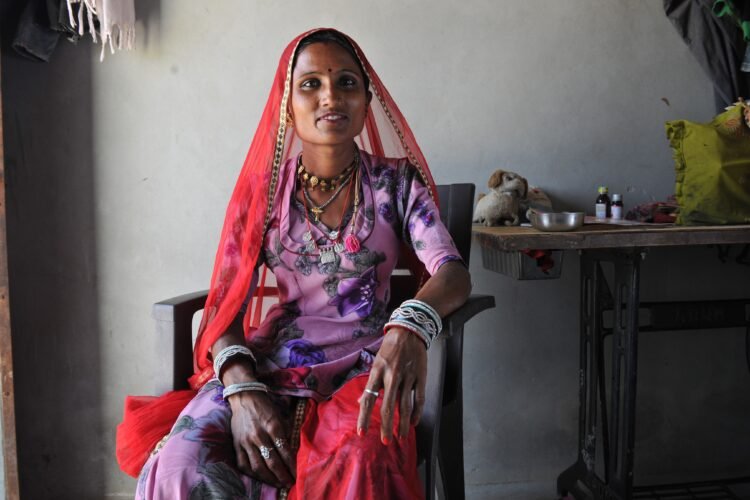By Rusen Kumar
Anil Agarwal, the founder and chairman of one of the world’s largest mining and metals companies, Vedanta Resources has pledged as much as 75% of his wealth towards his philanthropic ventures
Giving back has always been part of Vedanta’s ethos. By providing critical access to infrastructure in healthcare, education, skill development and women’s empowerment, Vedanta has been running various philanthropic schemes across the country. Vedanta’s flagship project, Nand Ghar, under the aegis of the Anil Agarwal Foundation is one of the largest and most transformative for rural India.
Project Nand Ghar which is presently working across 12 states so far, aims to transform the lives of 7 crore children and 2 crore women across 13 Lakh anganwadis in India. Currently, there are 2700 Nand Ghars in India working for women and child development. In the first phase of the project, Vedanta aims to build 4,000 Nand Ghars across India by December 2022, making it a national movement.
The dream project of Anil Agarwal, Nand Ghar reimagines the facilities provided to the mother and child at the Anganwadi centres set up under the Integrated Child Development Scheme, popularly known as the ICDS – One of the government’s key initiatives for uplifting rural India. The Nand Ghar project is bringing an array of facilities to rural areas which were once coveted to only urban areas.

Now a network of modern anganwadis, with state-of-the-art infrastructure, the Nand Ghars are established in partnership with the Union Ministry of Women and Child Development, in alignment with the vision of the Government’s Beti Bachao Beti Padhao, Swaccha Bharat and Digital India programs. The Nand Ghars provides a set of integrated services to women and children working towards the eradication of child malnutrition, providing high-quality pre-primary education, healthcare and empowering women with Skill Development towards supplementing their household incomes.
To encourage skill development and empowerment amongst women, Nand Ghar provides a best-in-class entrepreneurship development programme to the women of its communities. Taking in the regional context and demand for a trade, their academic knowledge and economic background, Nand Ghar trains these women to be entrepreneurs.
The extensive skill development programme is not just limited to the classes on conducting a certain trade, Rudraksha mala making for example, but also includes the training and development of soft skills, making the women financially literate, explaining to them the tactics of business development and execution.
Nand Ghar ensures that the women who have enrolled and have successfully completed the skill development programme, get the opportunity to enter the market and trade freely. For this, Nand Ghar has devised the twin model for enterprise and federation creation.
Under this model, Nand Ghar selects and prepares a list of potential trade opportunities based on the geographical and regional significance or culture of the village. First, a profile of the village is created to understand the demographic and local facets of the villages. Then a set of 30 women are trained per batch over a period of 6-8 months on a rolling basis, depending on the intricacy of the trade. The women are counselled and assisted in developing their business plans. The best 15 of these business plans are selected and these women are exclusively supported to start their businesses from a scratch. A significant number of women among these go on to become entrepreneurs for a longer-term, while the rest of the women who received training are gainfully employed under various trades. Not only this but the women are also linked to various government schemes for better assistance and sustainability.
An intangible outcome of this training programme is that these women feel confident to work, earn and support the education of their children. They find an array of trade/job opportunities to contribute to the annual income of the family.
Nand Ghar has distributed around 23 Lakhs as a credit to women and 97% of these women are able to pay back the credit with the income generated from their trade in the form of monthly installments.
More than 70% of these women have agreed that being financially aware and independent also elevates the importance given to their opinions as they are now able to contribute to the income of the family, with this there is an increase in their self-respect too.
Nand Ghar’s handholding and guidance turn these aspirational dreams into inspirational stories. Such is the story of Pavani Devi, an ordinary rural woman with extraordinary resilience and mettle.
Pavani Devi of Meghwalo ki Basti, Barmer is an example of exemplary resilience, showcasing her strength and capability, setting an example of what dedication looks like. Pavani Devi got married at a young age and has a family of three children. Her typical day starts at dawn, wherein she takes care of her home, feeds her family, fetches fodder for the cattle, works in the fields while looking after her children, all at once.
It all began with this young lady deciding to supplement her husband’s meagre income of 6000/month, which was not sufficient to provide for all the needs of her family. While she had dreams and determination, she didn’t have the right knowledge and skills to manifest her dreams of setting up and starting a business. In this pursuit, Nand Ghar became a catalyst for Pavani Devi, motivating her and guiding her in her journey.
Pavani attended the Entrepreneurship Development Programme of Nand Ghar, which was held on alternate days a week for a period of three months and learned how to build on her entrepreneurial abilities and became proficient in tailoring.
With the help of a loan of Rs 10,000 to be paid back in monthly installments, Pavani bought a sewing machine and related materials. Since hers is the only shop of its kind in the village, her average monthly income is Rs 4,500. Pavani caters to the women of her community and the nearby vicinity stitching vibrant traditional attire of Ghagra, Choli and Duppata. With this, she dreams of building a home and sending her children to school and helping them build on their journey towards success and development. Her business venture has motivated and given her the required confidence to overcome the hesitation and apprehensions that hindered her growth earlier.
Multitasking has never been an easy task, yet Pavani showcased the capability to manage her home, children and business together, hence becoming an inspiration for women, motivating them to dream and stand equivalent to their male counterparts in the community. She is ever so sewn in the fabric of the social setup that is around her (similarly like everyone who is a part of the society), she has been taking care of family with expertise.
She expresses her gratitude towards her family and is thankful for the support provided to her by the Entrepreneurship Development programme by Nand Ghar that allowed her to embark on her journey which she believes will supplement the growth and development of her children and family.
Being a role model for her community, Pavani was featured at the WeTheWomen Asia series as a successful Nand Ghar Change agent, where she got the opportunity to share her story of being a grassroots-level entrepreneur. Today, Pavani’s success has inspired her sister Dhaneshwari who also wants to start a tailoring business in her village.
With Nand Ghar, there is a significant increase in the facilities availed by the beneficiaries at the centre. The community members have demonstrated a positive response and confidence in the services that are provided to them at the Nand Ghars. There is an increase in the attendance of children for education and nutrition by 65%. In terms of health, more than 90% of the community members have agreed to improvised availability of preventative and curative health services. More than 95% of beneficiaries have received hot cooked nutritious meals and nutritional awareness/practices sessions by Nand Ghar. Notably, the Anil Agarwal Foundation has also partnered with the Bill and Melinda Gates Foundation for improved nutrition and health outcomes.
During the covid pandemic, a period when health safety and financial crunch were matters of concern, Nand Ghar and its women beneficiaries, took up the mantle to sew 1 lakh masks, protecting the community members against the virus and also providing an increased/supplemental income.
Nand Ghar is building long-term sustainability and is encouraging ownership among community members for their self and social development as a step to ensure that transformation is deep-rooted and self-propelled.
(India CSR)




























